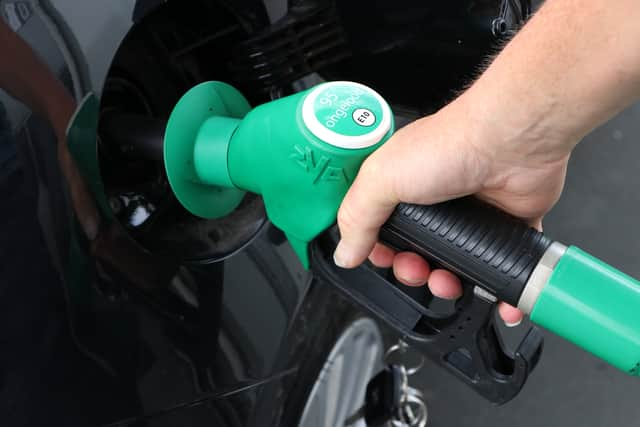Running costs for young drivers jump £160 in 6 months - here’s how to bring down bills
and live on Freeview channel 276
The car running costs faced by young drivers has jumped by more than £160 in the last six months as soaring fuel and insurance costs hit motorists.
On average, drivers aged 17 to 24 now have to spend £2,229 a year to keep their car on the road and experts are warning car ownership could soon become unaffordable for many motorists.
Advertisement
Hide AdAdvertisement
Hide AdYounger drivers already face some of the highest car running costs and with the cost of living increasing across the board, the latest rises are adding to the pressure on their finances.
To make matters worse, the price of used cars has also jumped sharply, making it more expensive to get on the road in the first place.


Insurance accounts for more than half (52%) of the average running costs for a driver aged 17 to 24 and premiums have shot up by £92 in the last six months, according to Compare the Market.
Its latest report on young motorists found that the average annual policy is now £1,154 - 9% more than in the first half of 2021.
Advertisement
Hide AdAdvertisement
Hide AdNew rules designed to end car insurance “price walking” appear to have pushed up the average price of policies across the board, with less experienced drivers among those hardest hit.
On top of that, the cost of fuel has rocketed in the last six months and prices are now reaching new record highs on an almost daily basis.
Loading....
Compare the Market estimates that the annual fuel bill for a young driver has jumped £73 in the last six months to £818 but its figures are based on prices from early in the year when petrol was £1.44 a litre. The latest rises, which have seen petrol reach £1.63 a litre in mid-March, mean the cost will now be even higher.
The changes mark a sharp contrast to last year when the effects of the Covid pandemic and lockdown meant costs for young drivers fell to a six-year low.
Advertisement
Hide AdAdvertisement
Hide AdAlex Hasty, director at Compare the Market, commented: “Young people will be concerned that the cost of driving has risen so dramatically, adding to the financial pressure many are under.
“Both insurance and fuel costs have jumped significantly over the last six months, meaning that even if people save the money to buy a car, it will be a significant challenge to afford the ongoing running costs.”
To help young drivers cut their car running costs Compare the Market has offered the following advice:
- Choose a cheaper car to insure - the make and model of the car you drive can have a big impact on your insurance price. Popular models like the best-selling Ford Fiesta or Vauxhall Corsa cost around £1,100 to insure while a Citroen C1 or Volkswagen Up can cost less than £700.
- Consider a black box policy - telematics or black box insurance uses an on-board tracker to monitor a driver’s behaviour and driving habits and allows insurers to adjust the price accordingly, rewarding sensible and safe driving with lower costs.
- Reduce your mileage - with the cost of fuel rising by more than 30p per litre in the last six months it’s never been more expensive to drive. By cutting out unnecessary trips or combining journeys, you will reduce how often you need to refill your tank. A lower mileage can also help lower insurance premiums.
- Avoid modifications to your car - you can reduce your premium by avoiding any modifications to your car, as this impacts premiums.
- Add a (responsible) named driver - adding an experienced driver, such as a parent or older sibling, as a second named driver if they share your car can lower premium prices.
- Shop around - The cheapest annual premium typically available for young drivers costs £925, so by shopping around when your policy is due for renewal you can save an average of £229 per year
Comment Guidelines
National World encourages reader discussion on our stories. User feedback, insights and back-and-forth exchanges add a rich layer of context to reporting. Please review our Community Guidelines before commenting.
